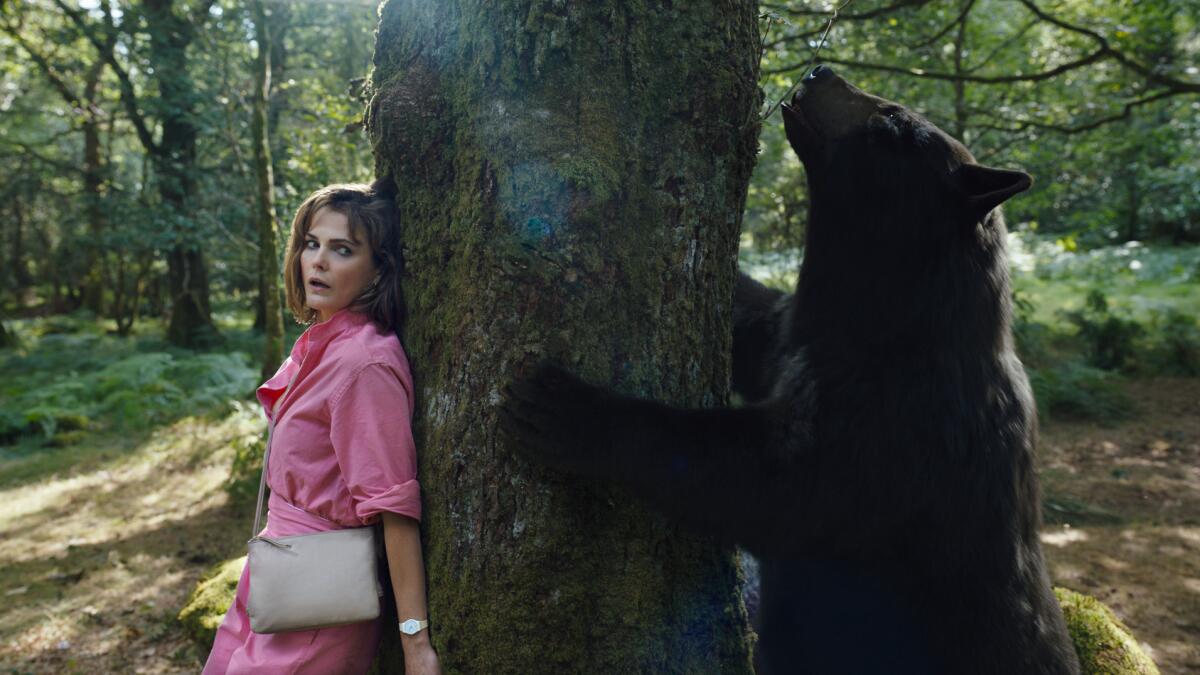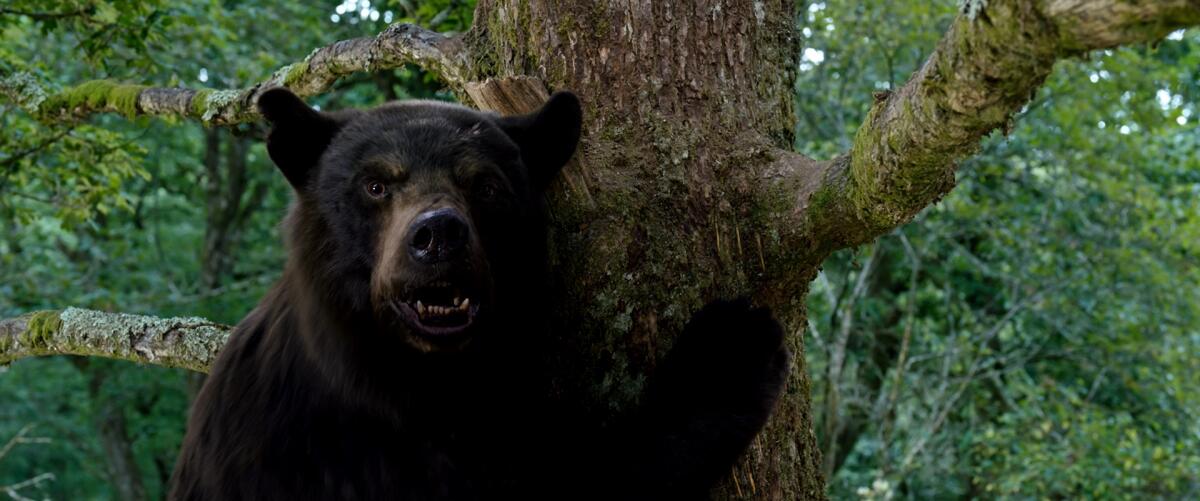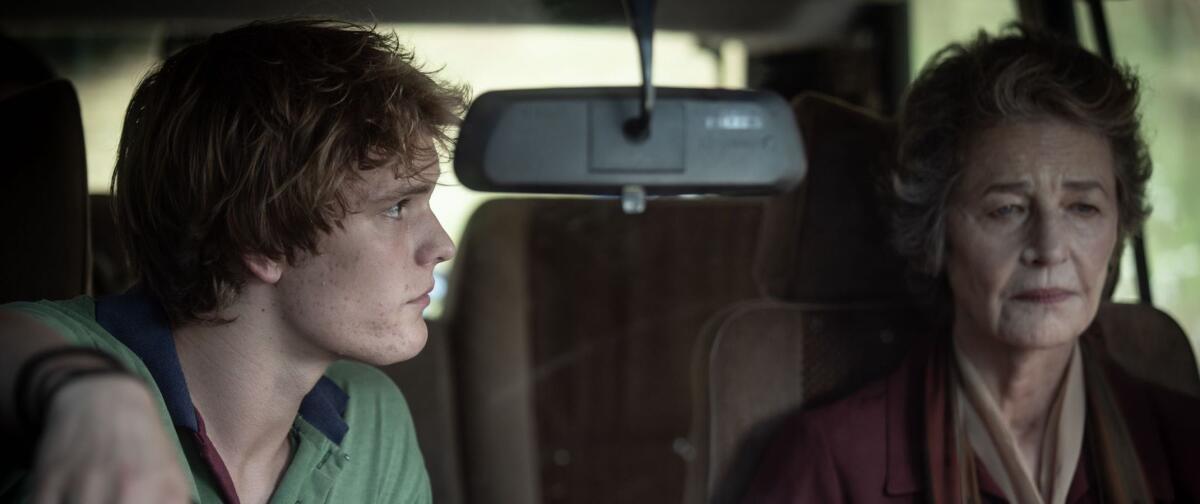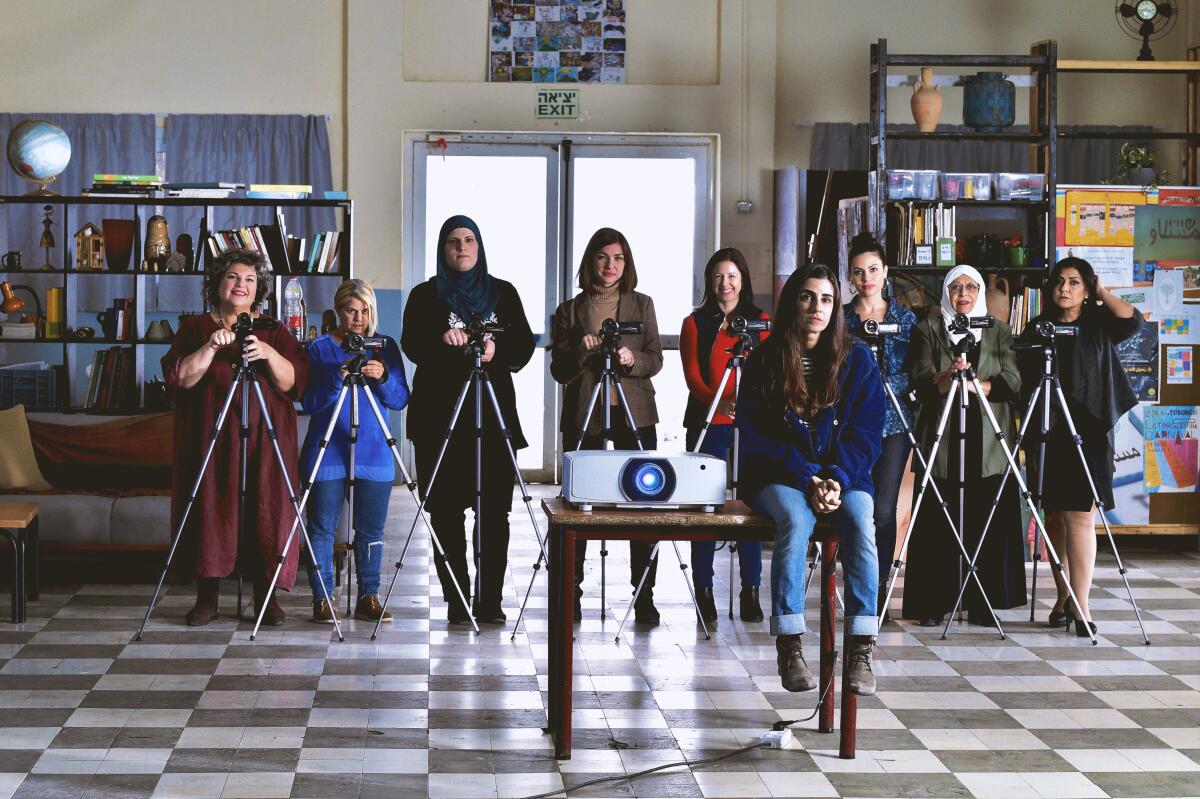Does ‘Cocaine Bear’ live up to the promise of its title?

- Share via
Hello! I’m Mark Olsen. Welcome to another edition of your regular field guide to a world of Only Good Movies.
Only good movies
Get the Indie Focus newsletter, Mark Olsen's weekly guide to the world of cinema.
You may occasionally receive promotional content from the Los Angeles Times.
Bruce Lee Tribute. Saturday the UCLA Film and Television Archive is screening “The Way of the Intercepting Fist,” a 1971 television broadcast (with the original commercials!) that was a key showcase for actor and martial artist Bruce Lee and his philosophy of Jeet Kune Do. The evening’s program will also feature a 35-mm Technicolor print of “Enter The Dragon,” Lee’s final completed film before his death in July 1973. Lee’s daughter Shannon Lee will be in attendance for a Q&A in between screenings.
Paul Mescal and ‘Aftersun.’ One of my favorite movies of last year was the heartbreaking “Aftersun,” the debut feature from writer-director Charlotte Wells. (It was such a joy having her on our Envelope directors panel this year.) One of the co-stars of the film, Oscar nominee Paul Mescal, will be making an appearance at the American Cinematheque’s Aero Theatre on Tuesday, Feb. 28, for a Q&A after the film, moderated by Vanity Fair’s David Canfield. The event is sold out, but there should be a stand-by line if you’re feeling adventurous.
Alison Willmore at Vulture wrote a wonderful overview of Mescal’s career, from his breakout role in “Normal People” forward, noting, “What sets him apart aren’t his looks so much as the heady combination of those looks with a hint of sensitivity that the men he plays can’t be counted on to actually behave. He has a gift for playing one of the guys while daring you to believe he’s more than that. Other heartthrobs may exude swagger or sex, but Mescal emanates something even more devastating: the irresistible promise of eventual disappointment.”
Mescal spoke to Daniel Vaillancourt for The Envelope recently, in an interview that took place barely an hour after Mescal had stepped offstage from a London production of “A Streetcar Named Desire.” The 27-year-old actor said he is trying to just enjoy his first Oscar nomination as much as possible, “Because, like, I highly doubt that I’m gonna win it.”
Mescal also posed for this truly delightful portrait.

Enjoying this newsletter? Consider subscribing to the Los Angeles Times
Your support helps us deliver the news that matters most. Become a subscriber.
‘Cocaine Bear’
Directed by Elizabeth Banks from a screenplay by Jimmy Warden (with Phil Lord and Christopher Miller among its producers), the title of “Cocaine Bear” pretty much sells itself. Either you’re in or you’re not. Loosely based on a 1985 incident in which a wild bear ingested a duffel bag full of cocaine in the woods, the movie is about a drug dealer (Ray Liotta), his son (Alden Ehrenreich) and a missing bag of cocaine, ingested by said bear who goes on a rampage. The cast includes Keri Russell, O’Shea Jackson Jr., Matthew Rhys and Brooklynn Prince. The movie is in theaters now.
For The Times, Justin Chang wrote, “What if the bear, rather than simply kilo-ing over [as it did in 1985], had gone on a murderous coke-fueled rampage driven by a hunger for not just sinewy human flesh (though there’s plenty of that), but for another whiff of that sweet, sweet powder? Nasty, brutish and snort-filled, ‘Cocaine Bear’ provides an extremely gory and amusingly speculative answer. … Whether or not audiences form lines for ‘Cocaine Bear,’ it’s hard to completely dismiss a mainstream horror-comedy that offers a nice supply of sharp and grisly, at least until it takes a disappointing turn for soft and cuddly. You’ve seen worse new movies in February, maybe even this February.”
For the New York Times, Jason Zinoman wrote, “At its best, ‘Cocaine Bear’ has the feel of an inside joke. It consistently invites you to laugh at it. The producers are clearly aiming to capture the lightning in a bottle that ‘M3gan’ pulled off earlier this year, another Universal horror-comedy whose slick special effects elevated its B-movie conceit. … As fun as [‘Cocaine Bear’] can be — one chase scene in an ambulance makes up for a few rote jump scares — there are frequently hints of a better one inside it. The best version is a raucous, transgressive comedy, the kind they supposedly don’t make anymore. Banks does seem to get away with some giddy, dangerous moments, like a scene in which two preteens try to do cocaine. It gets a few laughs, but leaves plenty more on the table.”
For the Hollywood Reporter, Lovia Gyarkye wrote, “Elizabeth Banks’ highly anticipated adventure ‘Cocaine Bear’ gorges on the ‘what ifs’ of the case. What if the bear encountered people before it died? What if there were witnesses to its blood-thirsty addiction? What if it was a mother, and a symbol for humanity’s idiotic hubris in the natural world? Don’t be turned off by that last question — heady and philosophical as it seems — because the film doesn’t linger too long on it: ‘Cocaine Bear’ isn’t in the business of sacrificing antics for a greater purpose. It aims for maximum entertainment, reveling in farce and gnarly killings to create an experience that keeps you on your toes even if the details get murky upon further reflection.”
For the Independent, Clarisse Loughrey wrote, “The Cocaine Bear of ‘Cocaine Bear,’ obviously, does not die 20 minutes into ‘Cocaine Bear.’ Screenwriter Jimmy Warden has instead found a way to milk the joke without necessarily disrespecting the real animal at the centre of its story. Here, the bear is transformed into nature’s own avenging angel, who tears human beings apart as one might drunkenly demolish a McNuggets Sharebox after a night out. Cocaine Bear, who is here a Ms Cocaine Bear, is really the heroine of our story. She’s Uma Thurman’s Beatrix Kiddo for the age of internet memes. … There’s a delicate but largely invisible balancing act at work in ‘Cocaine Bear.’ For every risqué joke, there’s a touch of sincerity.”

Enjoying this newsletter? Consider subscribing to the Los Angeles Times
Your support helps us deliver the news that matters most. Become a subscriber.
‘Juniper’
Written and directed by Matthew J. Saville in his feature debut, “Juniper” is set in 1990’s New Zealand and finds 17-year-old Sam (George Ferrier) forced to help care for his ailing grandmother Ruth (Charlotte Rampling), a former war photographer, as the two warily come to appreciate each other. The film is in theaters now.
For The Times, Gary Goldstein wrote, “The well-acted, well-intended family drama ‘Juniper’ is inspired by the true-life experiences of first-time feature writer-director Matthew J. Saville. So why doesn’t it feel richer and more lived-in? … The film, strikingly shot by Marty Williams, comes together in more sentimental, mainstream fashion than most of what precedes its audience-friendly conclusion. The result, although not an unsatisfying way to take us out, doesn’t feel sufficiently earned.”
For the New York Times, Beatrice Loayza wrote, “Matthew J. Saville’s debut feature, is half coming-of-age story, half swan song, anchored in a process of intergenerational bonding. … Ruth and Sam have never really spent time together — and the first few days are particularly rough, filled with barbs and shattered glasses. Predictably, their relationship softens up, but the film nevertheless maintains some of its prickly charm, in no small part because of the feisty Rampling, whose ice-queen persona here straddles bone-dry humor and withering tragedy.”
For the Guardian, Cath Clarke wrote, “You can exactly see where this is going from the off. Ruth and Sam — each raging at the world — inching towards friendship and a sense of peace. Still, while first-time feature director Matthew J Saville won’t be winning any awards for originality, he has made an emotionally satisfying film. It’s beautifully acted with insightful things to say about how alcoholism and dysfunction echo unhappily down the generations.”

‘Cinema Sabaya’
Written and directed by Orit Fouks Rotem, “Cinema Sabaya” was Israel’s submission for the Oscar for international feature, though it wasn’t nominated, and won five awards at Israel’s Ophir Awards including best film and best director. In the film, a group of Arab and Jewish women attend a video workshop run by a young filmmaker (Dana Ivgy) and perhaps not surprisingly soon discover their differences are not as strong as they supposed. The film is in theaters now.
For The Times, Robert Abele wrote, “As creation and conversation allows the women to move past acknowledged differences — on divorce, sexuality, child-rearing, even which language should be spoken (mainly Hebrew, with Arabic dotted throughout) — and toward friendship, the teacher’s dream is bared too. It leads to the film’s last, refreshingly necessary, ethical conversation: When it comes to art, storytelling and empowerment, how does one reconcile the private and the public?”
For the New York Times, Beatrice Loayza wrote, “The elephant in the room is the Israeli-Palestinian conflict and its attendant biases, which emerge during a heated session in which the bubbly Eti (Orit Samuel), a middle-aged Jewish woman, confesses to her fear of Islamic terrorists. The workshop is ultimately a unity exercise premised on the trite axiom that conversation breeds compassion. It’s not an unwelcome reminder, and Rotem’s organic approach steers clear of icky idealism, but its conclusions nevertheless feel worn out. Talking helps, sure, but getting people in the same room is too often the stuff of fiction.”
For Variety, Alissa Simon wrote, “Without any context, some viewers may believe the film is a documentary since it feels so organic and naturalistic, with complex, well-rounded characters. Rotem gained extra authenticity by rewriting her characters as she found her cast. Indeed, in some cases, she incorporated elements of the actors’ life stories. Moreover, she didn’t insist on the performers (some of whom are pros) delivering her dialogue verbatim, instead allowing them to interpret the intention behind the lines and say them in their own words. Give me these women talking over Sarah Polley’s any day.”

Only good movies
Get the Indie Focus newsletter, Mark Olsen's weekly guide to the world of cinema.
You may occasionally receive promotional content from the Los Angeles Times.




